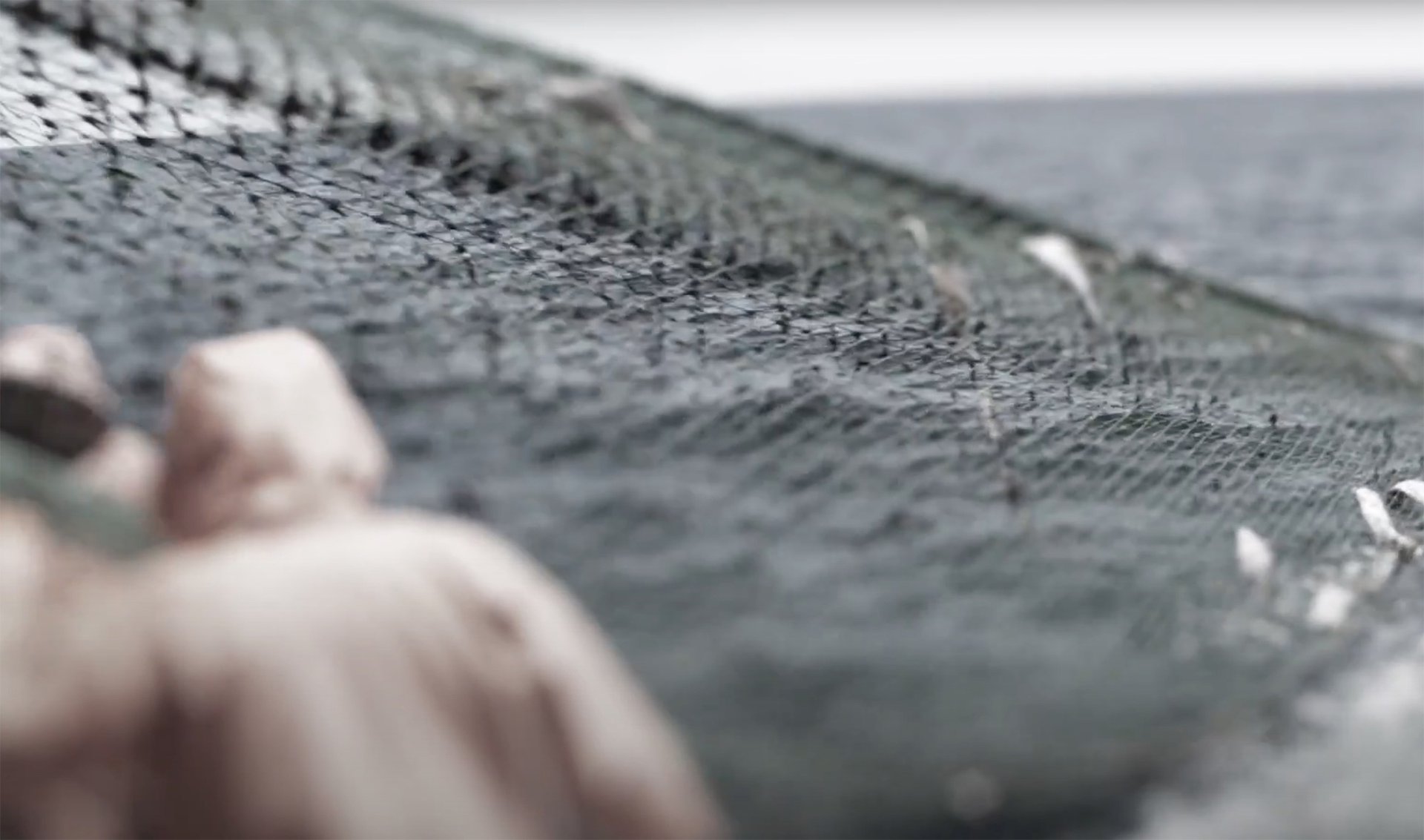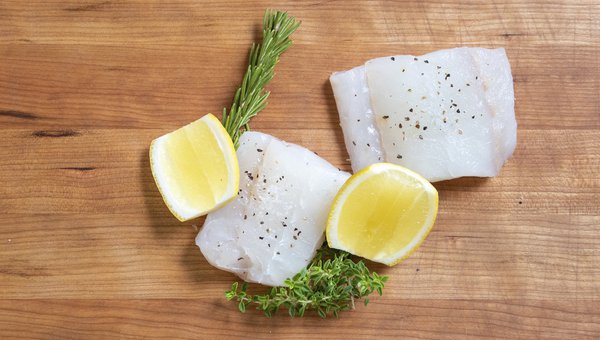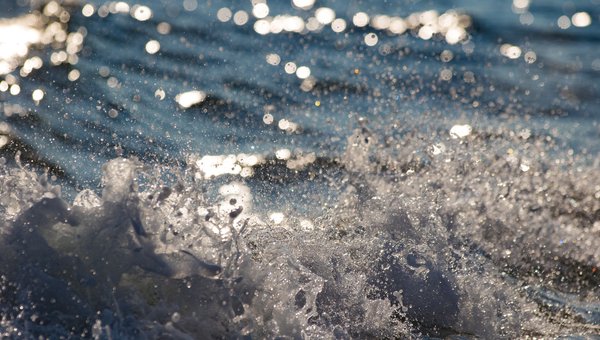Staff Perspectives: Seafood, Sustainability, and Climate Change
Perspectives | Jun 8, 2021
The word "sustainability" can mean different things to different people, depending on their varying contexts or experiences. At GMRI, we approach the concept of sustainability with the goal of supporting both ocean ecosystems and the people who depend on them. Scientists and seafood industry experts who work at GMRI share their own interpretations and perspectives on sustainability below.

Sustainability and Fisheries Management
GMRI Senior Research Scientist Dr. Lisa Kerr leads our Quantitative Fisheries Research Lab. Her research informs sustainable management of fisheries and ecosystems as a whole. Currently her work focuses on 1) understanding the influence of climate, harvest, and management on fishery resources, 2) advancing the study of fish population structure and its implications to sustainable management of fishery resources, and 3) applying management strategy evaluation to develop improved approaches to fisheries stock assessment and management. Read on to hear what sustainability means in the context of her work.
What makes a fishery sustainable?
The fishery management process is designed to be responsive to change, reducing harvest limits in response to low biomass and increasing allowable harvest as biomass increases. The ultimate goal is sustainability, meaning the level of harvest allows for fishing without depletion of the fish stock.
In the context of global fisheries management, the US has some of the best managed fisheries in the world. A key element of US fisheries management is science-based advice on how much fish can be caught. Fishery resources are actively monitored and we use our knowledge of fish dynamics and information from surveys and the fishery to determine appropriate levels of catch that the resource can sustain over time.
There are many successes to point to in US fisheries management, but it is also not without its problems. One of the key challenges in fisheries management is that our decision-making is closely tied to historical perceptions of stock dynamics and the assumption that these will continue to persist into the future. Climate change is impacting our fishery resources in ways we have never seen before and disrupting the assumption that we can expect the future of our fisheries to look like the past. Fisheries managers are concerned about climate impacts on fisheries resources, but may not know how to take action.
There are many ways to adapt management approaches to account for climate impacts, but there are few examples of these approaches being translated to actions. We are using virtual simulations of the fish-fisheries-management system to test out alternative management approaches that aim to account for climate impacts. Doing this in the context of a computer simulation allows us to test these new ideas virtually before testing them on the water where they impact people's livelihoods.

Responsibly Harvested Seafood and Sustainability
GMRI Sustainable Seafood Senior Program Manager Kyle Foley leads our seafood team's strategic efforts to strengthen both the ecological and economic sustainability of the Gulf of Maine seafood industry. Kyle is dedicated to building demand for responsibly harvested seafood from the Gulf of Maine region. To make progress, she and her team have spent years forging strong partnerships with seafood supply chain members, made up of processors, restaurants, institutions, and major retailers. Learn more about what the concept of responsible harvest means to Kyle and her team.
How and why do we define Responsible Harvest?
At its most basic definition, responsible harvest is about leaving enough fish in the water for the future. With our Gulf of Maine Responsibly Harvested® ecolabel, we evaluate how a particular species is being managed (regulated) by state and federal agencies, whether there is good data and science informing that management, and whether there is monitoring and enforcement in place to ensure compliance with the rules. We haven't always had strong fisheries management in the US, but today our system is among the best in the world. Despite claims to the contrary in popular media, there are many responsibly harvested fish, shellfish, and sea greens from the Gulf of Maine — so when you choose seafood from this region, you can feel good about it.
Rules and regulations that ensure sustainability, clean air and water, food safety, and labor standards can mean a higher cost of doing business for the seafood industry in our region. This can make it difficult for local seafood to compete with cheaper, imported seafood — which may not be managed as strictly. We developed our ecolabel to bring awareness to the diversity of responsible seafood in the Gulf of Maine region, and to give businesses and consumers an opportunity to choose regional seafood with confidence.
Responsibly harvested seafood benefits our health, ecosystem, and economy. First, eating a diverse range of seafood is good for our health. Fish, shellfish, and sea greens contain a wide range of nutritional benefits that can be hard to find in other foods. Research has increasingly shown that, with a small handful of exceptions, the health benefits to eating seafood far outweigh the risks. Second, when it's responsibly harvested, seafood is a renewable resource. Well managed fisheries ensure we won't take more fish from the Gulf of Maine than populations can sustain. Finally, seafood has been an important part of our region's economy for centuries, and it has the potential to continue to provide sustainable livelihoods in coastal communities for many years to come.
Whether seafood continues to be a resilient part of our region’s economy and food security depends on our support, as consumers. We have the power to ask for local seafood where we shop and eat and to reward the local businesses that make it a priority.

Sustainability, the Ocean, and Us
Climate change poses an existential threat to coastal communities as we know them. Dr. Dave Reidmiller leads our Climate Center, which supports local, state, national, and global climate actions that empower these coastal communities to thrive in a warmer world. Dave's global perspective is informed by his service in a variety of senior positions for the federal government, including as a director of the Fourth National Climate Assessment, his leadership in the development of the Intergovernmental Panel on Climate Change, and as a lead US negotiator for the Paris Agreement. Read more from Dave on sustainable fisheries and the ocean as a climate solution
The Ocean as a Climate Solution
When I think about "sustainability," I tend to start with the ocean itself. The vastness of the ocean goes unrecognized by most people as they go about their day-to-day lives. Many are familiar with the fact that 70% of Earth's surface is ocean — but the ocean's depth is often overlooked. For example, if the surface area of our ocean were concentrated in a column the size of Utah's Great Salt Lake, that column of water would stretch all the way to the moon. This is important from a climate perspective because the world’s oceans provide enormous benefits to humanity just by the nature of its extent and depth. Ocean water serves as a sponge of sorts, sopping up between a quarter and a third of the carbon dioxide we humans emit, saving us from even more warming than we’ve already observed. Moreover, the ocean serves as a gargantuan heat sink. More than 90% of the excess energy in the Earth system caused by that remaining carbon dioxide (and other greenhouse gases) in the atmosphere is absorbed by the ocean. Simply put: the ocean has been saving us from ourselves.
Like a sponge, though, as the ocean becomes more saturated with carbon dioxide, it becomes less able to absorb the continuous flow humanity emits into the atmosphere. This is stressing the ocean by warming it, acidifying it, and causing a range of subsequent physical, chemical, and biological changes to the ecosystems that have supported livelihoods and local economies through fishing, tourism, and other marine activities for generations.
But the ocean isn’t just a climate victim; it can be a climate hero. The ocean serves as a climate solution in many ways. For example: (1) it can serve as a proving ground for new technologies in low- or no-carbon shipping and maritime transport, (2) it provides an environment for a slew of zero-carbon renewable energy technologies (e.g., wind, wave, tidal, thermal), and (3) natural ecosystems such as kelp forests, seagrass beds, and salt marshes provide the rare “adaptation-mitigation-biodiversity” triple win, attenuating waves from stronger storms, serving as massive storage reservoirs for carbon, and providing lush habitat for spawning and juvenile species.
Importantly, food harvested from the ocean can be part of the solution, as well. While there are regions of the world where unsustainable fishing practices, land-based agricultural practices, and other human activities exacerbate the stresses on ocean life, the vitality of the marine ecosystem in the Gulf of Maine remains in large part because of the sustainable practices embedded in the ethos of the stewards of our cold, clean waters. By consuming local seafood, we are not only avoiding the large carbon footprint associated with industrial fishing operations overseas, but we’re supporting a way of life that has demonstrated its ability to sustain a healthy, thriving marine ecosystem across generations despite increasing global threats to its vitality.

Our Perspective
Sustainability can be a complex and ambiguous topic, but in the context of fishing, fisheries, and the Gulf of Maine ecosystem, our experts agree:
- Gulf of Maine fisheries are well-managed.
- Climate change threatens our ability to manage fisheries well, but scientists are advancing new methods to incorporate climate change into the fisheries management process.
- There are many opportunities to buy seafood that has been responsibly harvested from the Gulf of Maine, and by doing so you are making a decision to support both healthy ocean ecosystems and fishing communities.
- Food harvested from the ocean can be a climate solution, it does not have to be a climate problem.
Our understanding and ability to support sustainability in the Gulf of Maine is always evolving, but the scientists and seafood experts who work here are committed to advancing these ideals in their work each day.



